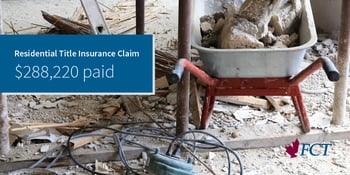
Wood’s Homes began as a small orphanage over a century ago, and has grown into a series of campuses throughout the Greater Calgary Area. At FCT, we’re invested in our community, which is why we are proud to support them as they provide mental health and crisis care to kids, teens and young adults.
Today, Susan Ward, Program Manager at Wood’s Homes sits down with us to discuss the effect of trauma on youth, and the role of forgiveness in the journey to recovery.
What makes your approach to youth homelessness unique?
We teach our staff, as well as our children, that they can make mistakes. Our practice is about building relationships through leadership and forgiveness.
Many of our young people have been mistreated, and have learned hard lessons early on. It’s common for them to re-enact those lessons in their own lives. It can lead them to lash out at people close to them or push them away. We call it “pain-based behaviour.” They think they’re not worth the relationship, so they try to sabotage it.
That’s where forgiveness comes in and helps break that cycle. We’re not a “one strike, you’re out” type of organization. We’ve had so many kids come to us still in that pain-based mental space, who think “I’m going to break this placement down and you’re going to kick me out.” But we’re going to be there for them, again and again.
Forgiveness creates the space to teach our kids how to reconcile what they’ve experienced. Forgiving themselves can become forgiving others.
Why does Wood’s Homes place such a heavy emphasis on mental health?
We know so much more than we did 10 years ago about how trauma evolves into addiction, and the role it plays in mental health.
There’s often a discernable traumatic event, and it doesn’t always fit what people may picture when it comes to childhood abuse. Perhaps it’s the parents not being able to accept their transgender child, or a family unable to accept a mental health diagnosis. I’ve also seen young people whose trauma has been in utero—domestic violence and abuse while the mom is pregnant.
Even if trauma happens too early for them to remember, it still alters brain development. It affects that person’s ability to form trust, as well as healthy attachments. That’s why it’s important not to look at mental health as a standalone issue. We don’t just work with individuals, but also with their families and circles of support.
What does working with families look like?
Our community stabilization program helps identify families where intervention may help. There are many reasons families start to fall apart, and being able to step in early is so important.
As an example, we might see a family where the child is skipping school, and their grades have begun to fall as a result. A parent finds rolling paper in the child’s bedroom and conflict starts to escalate. The child starts to become oppositional as a response to all the fighting. These are all early warning signs of a possible family breakdown, and it’s a situation where we might intervene.
Child Services doesn’t need to be involved; kids come and stay with us for five days, with a mediated family visit each day. Everyone sits with a trained counselor to try and work out where the disconnects are, and what we can build on.
On the other side of things, we get kids who are disconnected from family and experiencing homelessness. We try to work with their immediate family, but only where it’s appropriate. Sometimes it may be someone that kid identifies as being family, or a natural support. We have a conversation with them: how do we work together and build a resource network for that kid? Maybe the child can’t live with them, but they still need people to lean on when things are hard.
What do you wish people knew about the youth you work with?
I wish everybody could see them the way I see them: they’re flawed, but amazing. Every kid I’ve worked with in the last 19 years has added something to my life.
I pulled up to work this morning and one of my kids ran out of the building in his pajamas and bare feet, for no other reason than he was delighted to see me. This a kid who has been hurt—he doesn’t trust, but he trusts me. That’s a responsibility, one we carry every day. We’re helping to rewrite the story for everyone who comes through our doors, whether they’re five or 25.
Children are the most resilient beings on the face of the earth. They can experience such big events in their life and they can still laugh, love and connect. They are worth redemption. They are worth fighting for.
Find out how you can help Wood’s Homes, and make a difference to youth experiencing homelessness in Calgary.



















-min.jpg?width=350&height=216&name=title-fraud-homeowner-protection-blog%20(1)-min.jpg)
-min-1.jpg?width=350&height=216&name=home-theft-tile-fraud-toronto-blog%20(3)-min-1.jpg)
.jpg?width=350&height=216&name=title-insurance-bc-alberta-homeowners-blog%20(1).jpg)



-min.jpg?width=350&height=216&name=tanya-fowler-leading-insights-human-digital-innovation-blog%20(1)-min.jpg)



-min.jpg?width=350&height=216&name=BC-parking-claim-blog%20(1)-min.jpg)

-min%20(1).jpg?width=350&height=216&name=Big-Data-Blog%20(2)-min%20(1).jpg)
-min.jpg?width=350&height=216&name=PropTalk-what-every-home-owner-needs-to-know-Blog%20(2)-min.jpg)
















